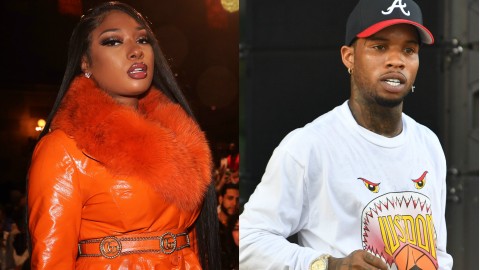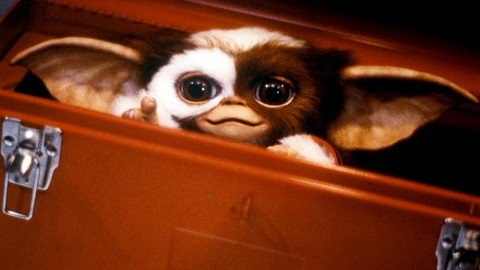
The director Ivan Reitman – a comedy great who died on Saturday (February 12), aged 75 – inherently knew the value of laughter, life and joy. The son of Hungarian Jews – his mother, Klara, survived Auschwitz and his father, Leslie, was an underground resistance fighter – was born in Czechoslovakia in 1946. The post-war Stalinisation of the country was no place to raise a young child and so the family fled to Toronto, Canada. “We came here penniless. I didn’t speak the language,” he recalled in 2007, as he was inducted into the Canadian Walk of Fame. “There’s something about being from a smaller place that makes you more polite.”
When his family arrived, they got work in a local Laundromat. Two decades after that they opened a car wash. Three decades after that – after a career helming movie smash hits like Ghostbusters, Twins and Kindergarten Cop – Reitman funded Toronto’s Bell Lightbox, located on the exact spot in the city where his family’s car wash once stood. Opened in 2010, the home of Toronto Film Festival houses five cinemas, two restaurants and a gallery.
Reitman’s upbringing – the poverty and fear in which he navigated childhood – left him in no doubt that his contribution to the world would be to make people happy. As a teenager he sang – he was a member of the Twintone Four singing group – before moving to McMaster University in Hamilton, Ontario and receiving a Bachelor of Music in 1969. He made short films and befriended future Ghostbusters star Rick Moranis. Then he got a production job at the newly created Citytv in Toronto. There he met another Ghostbusters alumnus, Dan Aykroyd.

Next, Reitman got a gig producing the Broadway-bound The Magic Show. He made his directorial debut with the 1971 comedy Foxy Lady, and introduced the world to both Eugene Levy and Andrea Martin. He employed the services of the former for an extremely trashy, very fun and largely improvised 1973 horror movie called Cannibal Girls (which Ghostbusters nerds will recall as being the movie showing at the cinema in Ghostbusters II and in Ghostbusters: Afterlife, directed by Reitman’s son Jason). Then after producing two of David Cronenberg’s strangest films, Shivers (1975) and Rabid (1977), Reitman found himself entrenched within the genre which he would help shape and which his name will forever be associated.
That Reitman would produce 1978’s John Landis-directed National Lampoon’s Animal House is largely a product of his own agency. It was he who called Matty Simmons, the publisher of the humour magazine beloved on US college campuses in the 1970s and proposed the idea of making movies under the Lampoon banner. He’d put together The National Lampoon Show in New York, which had starred a host of future Saturday Night Live greats, one of whom was Ghostbusters’ Bill Murray and the late, great John Belushi. One name from the cast wasn’t called up to SNL. That man was Harold Ramis, who would write Animal House and forge a friendship with Reitman that would endure through the years. Whether by fate or design, all the pieces Reitman would use to create his greatest work were coming together.

Written by, and starring, Aykroyd and Ramis, Ghostbusters was, and remains, a phenomenon. Brought onboard due to Aykroyd’s liking of Lampoon and the Reitman-directed 1981 Bill Murray war comedy Stripes, the immigrant filmmaker shaped the universally beloved comedy in ways immeasurable to its success. It was Reitman who paired writer with writer – and who voiced Slimer the “Mean, Green Ghost”. It was also Reitman who argued that Aykroyd’s initial vision of the four Ghostbusters travelling through time and space would be far too costly to realise. The film was still made for a relatively pricey $30million dollars, but the $282.2million recouped in its first theatrical run – as well as a franchise that’s proved continually popular in every decade that’s followed – suggests that Reitman’s frugal instinct was right.
Reitman slowed down as the ’80s became the ’90s – and sadly, we’ll never know what his take on Batman, in which he planned to cast David Bowie as the Joker, would have looked like. He began producing more than directing, through his company Northern Lights Entertainment, and though he was believed to be working on a sequel to 1988’s Twins (entitled Triplets) at the time of his death, it’s perhaps more fitting to remember father standing behind son, producer behind director, as two generations of Reitman revitalised the franchise with 2021’s Ghostbusters: Afterlife. Unlike in the movies, we don’t know if there really is life after death, although the career of Ivan Reitman suggests there might be, just not in a way that is supernatural.
The post Ivan Reitman – 1946-2022: ‘Ghostbusters’ legend who taught us to always seek the magic in life appeared first on NME.








